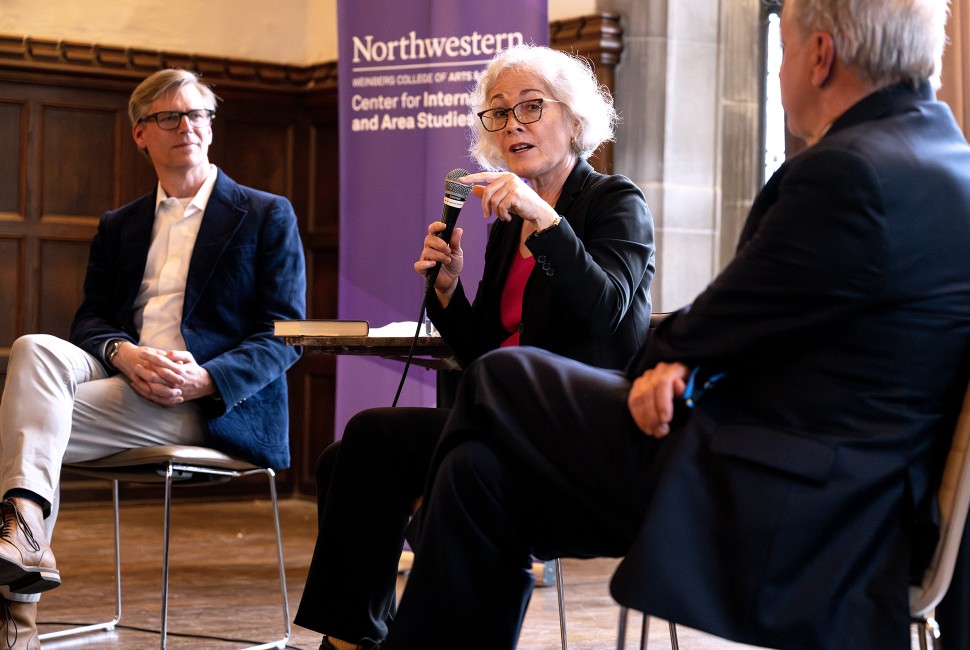The stakes in Ukraine remain existential — not just for Ukrainians, but for the security of the entire global community. This was the message that the former U.S. Ambassador to Ukraine Marie Yovanovitch delivered at an April 19 event hosted by the Weinberg College Center for International and Area Studies (WCCIAS) at Northwestern.
In her comments, Yovanovitch underscored that providing support to Ukraine “is not a charity,” but an investment in global security.
“If we don't support Ukraine and help Ukraine end this war with victory,” she said, Russia will continue pursuing territorial expansion in the region. Europe will be destabilized, and the international order will be undermined if Russia doesn’t face accountability, she continued, ultimately making the U.S. itself “less secure, [less] prosperous and … less free.”
Yovanovitch spoke in a discussion moderated by Center for International and Area Studies director Ian Hurd, a professor of political science and expert in international law.
“It’s important for Russia to understand that this is not the way to settle disputes in the 21st century.”
– Marie Yovanovitch
The Center for International and Area Studies is Weinberg’s unified hub for interdisciplinary teaching, research and programs on international and regional issues. It is a key facet of Northwestern’s outward-facing, global approach to dialogue, research and problem-solving.
Ian Kelly, Northwestern’s Ambassador in Residence, joined Yovanovitch in conversation.
Kelly previously served as U.S. Ambassador to Georgia and to the Organization for Security and Cooperation in Europe, and is currently appointed in the departments of Slavic languages and literatures and international studies.
Yovanovitch began by describing the breakdown of normal diplomacy that she experienced as U.S. Ambassador to Ukraine under the Trump administration, when, she said, there was a disconnect between the State Department and the White House that jeopardized key American foreign policy goals.
Foreign service officers “expect to do hard things” while promoting American policies and defending American security and values abroad, Yovanovitch said. But in return, they expect that administrations will say, “We have your back.”
That wasn’t the case under Trump, she said, who was often fickle in his decision making and relied on an inside group of advisors who didn’t always coordinate with the State Department, which undermined ambassadors’ ability to work effectively.
Ultimately, Yovanovitch was the victim of a smear campaign led by a corrupt Ukrainian prosecutor, which was fanned by the American media, she said.
But rather than defending her, the administration turned against her, and recalled her from her post months before Trump made his famous phone call to Ukrainian president Volodymyr Zelenskyy, in which he pressured Zelenskyy to investigate the Biden family, and tied that request to the continued receipt of U.S. aid.
That phone call was ultimately the cause of Trump’s first impeachment, and Yovanovitch gave key testimony in his impeachment hearings.



